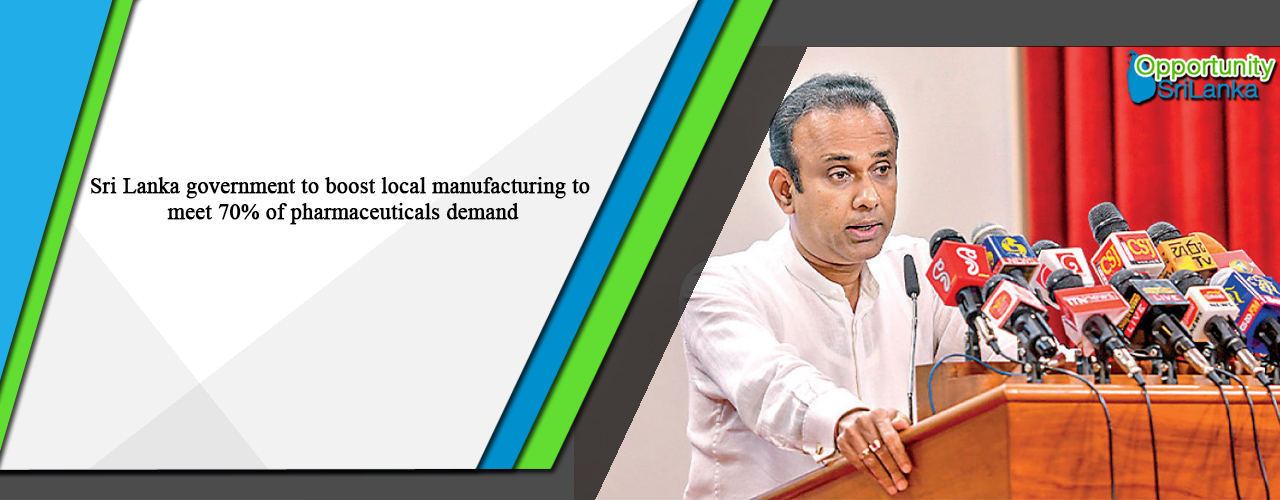Sri Lanka government to boost local manufacturing to meet 70% of pharmaceuticals demand
Daily FT: Minister of Industry and Health Dr. Ramesh Pathirana recently unveiled the Government’s plan to incentivize additional pharmaceutical manufacturers to establish operations in Sri Lanka with the aim of enabling them to meet a minimum of 75% of the nation’s pharmaceutical demand.
Speaking at a press conference hosted at the Presidential Media Centre, Pathirana disclosed that currently, only approximately 20% of Sri Lanka’s pharmaceutical needs are produced domestically.
The Minister further said that a National Policy for Industrial Development (NaPID) has been crafted and has been submitted to the Ministry of Finance for its endorsement prior to its presentation to the Cabinet. The NaPID is intended to be incorporated into Sri Lanka’s National Policy Framework (2023-2048).
Pathirana emphasized that currently, only 0.4% of the total land area of the island is allocated for industrial purposes, and the Government’s objective is to raise this to at least 1% in the future. He also noted the inauguration of three new industrial zones in Millaniya (Kalutara district), Elpitiya (Galle district), and Poththapitiya (Kandy district). The Minister said there are plans to establish industrial zones in Aluthapola, Dambulla, Sandamalgama, Suriyawewa, Mahawa, and Wellawaya in the near future.
OSL take:
Sri Lanka’s health industry, especially pharmaceutical manufacturing, is a new business/investment opportunity for foreign businesses/investors looking at entering the island’s economy. The government of Sri Lanka had earlier even declared a dedicated pharmaceutical manufacturing zone to boost the sector. The local authorities are also committed to manufacturing the local pharmaceutical requirements locally while also looking at pharmaceutical exports. Sri Lanka currently spends billions on importing a majority of the country’s pharmaceutical requirements. Therefore, locally manufacturing the pharmaceuticals that have a high demand in the local market could definitely draw the funds that are currently spent on imports. Also, the many trade agreements as well as trade concessions enjoyed by the country could help pharmaceutical imports as well. Given the incentives offered by the government of Sri Lanka to businesses/investors looking at investing in the health industry and the increasing business potential in the industry, foreign businesses/investors could confidently explore the expanding opportunities in Sri Lanka’s health industry, especially in the pharmaceutical manufacturing sector.
| Article Code : | VBS/AT/20231102/Z_1 |

